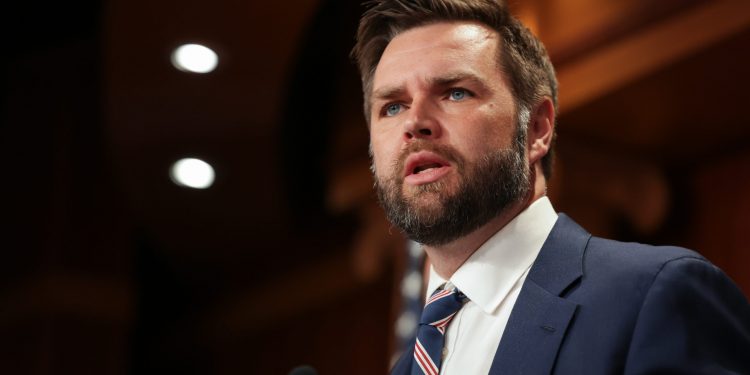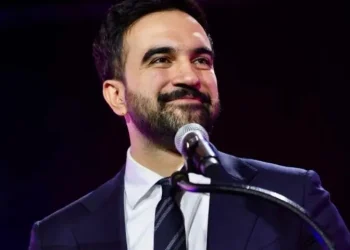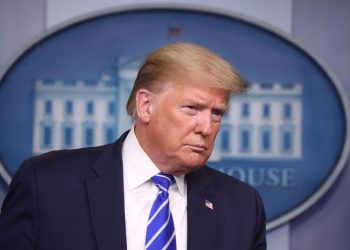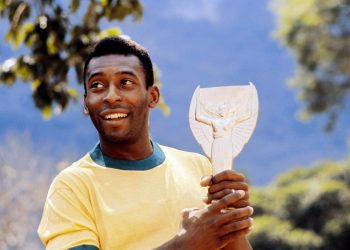European politicians and diplomats had already prepared for changes to their relationship with the US in the event of a second Donald Trump presidency.
Now that the Republican candidate has chosen Ohio Senator JD Vance as his running mate, those differences appear even more stark on prospects for the war in Ukraine, security and trade.
A vocal critic of US aid to Ukraine, Mr Vance told this year’s Munich Security Conference that Europe should wake up to the US having to “pivot” its focus to East Asia.
“The American security blanket has allowed European security to atrophy,” he said.
Nils Schmid, a senior MP in German Chancellor Olaf Scholz’s party, told the BBC that he was confident a Republican presidency would continue to stay within Nato, even if JD Vance came across as “more isolationist” and Donald Trump remained “unpredictable”.
However, he warned of a new round of “trade wars” with the US under a second Trump presidency.
An EU diplomat said that after four years of Donald Trump no-one was naïve: “We understand what it means if Trump comes back as a second-term president, regardless of his running mate.”
Portraying the EU as a sailing boat preparing for a storm the diplomat, who preferred not to be named, added that whatever they might be able to tie down, it was always going to be rough.
The US is Ukraine’s biggest ally, and President Volodymyr Zelensky said this week: “I’m not afraid about him becoming president, we will work together.”
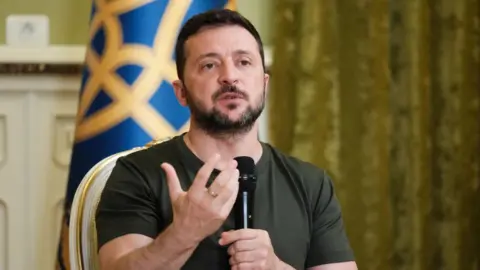
He also said that he believed most of the Republican party supported Ukraine and its people.
Mr Zelensky and Mr Trump also have a common friend in Boris Johnson, the former UK prime minister, who has consistently championed continued aid for Ukraine and recently met the former president at the Republican National Convention.
Following the meeting, Mr Johnson posted on X that he had “no doubt that [Mr Trump] will be strong and decisive in supporting that country and defending democracy”.
But even if that sentiment is true, it might not apply to Mr Vance, who, days before the full-scale invasion, told a podcast he “doesn’t really care what happens in Ukraine, one way or the other”. He also played a key role in delaying a $60bn military aid package from Washington.
“We need to try and convince him otherwise,” says Yevhen Mahda, the Executive Director of the Institute of World Policy think tank in Kyiv.
“A fact we can use is that he fought in Iraq, therefore he should be invited to Ukraine so he can see with his own eyes what is happening and how American money is spent.”
The question for Kyiv will be to what extent he can influence the decisions of his new boss.
Yevhen Mahda agrees that Trump’s unpredictability could be a problem for Kyiv in the run-up to the US presidential election.
The biggest supporter of the Trump-Vance ticket in the European Union is Hungary’s Viktor Orban who returned recently from a visit to see the Republican candidate, after visiting Mr Zelensky and President Putin, with whom he maintains close ties.
In a letter to EU leaders, Mr Orban said a victorious Donald Trump would not even wait to be inaugurated as president before quickly demanding peace talks between Russia and Ukraine.
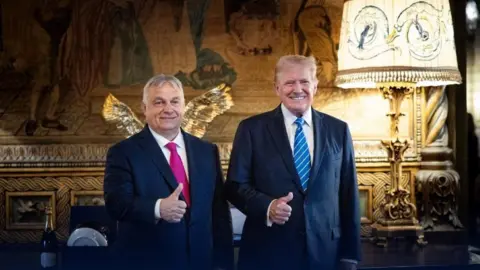
“He has detailed and well-founded plans for this,” the letter states.
Mr Zelensky has himself said this week that Russia should attend a peace summit possibly next November, and he has promised a “fully ready plan”. But he made clear he had not come under Western pressure to do so.
Viktor Orban’s recent “peace missions” to Moscow and Beijing have sparked accusations that he’s abusing his country’s six-month rotating presidency of the European Council. European Commission officials have been told not to attend meetings in Hungary because of Mr Orban’s actions.
During the Trump presidency, the US imposed tariffs on EU-produced steel and aluminium. Although they were paused under Joe Biden’s administration, Trump has since floated a 10% tariff on all overseas imports should he get back into the White House.
The prospect of renewed economic confrontation with the US will be seen as a bad, even a disastrous, outcome in most European capitals.
“The only thing we know for sure is there will be punitive tariffs levelled on the European Union so we have to prepare for another round of trade wars,” said Nils Schmid, the Social Democrats’ foreign policy lead in the Bundestag.
JD Vance singled out Berlin for criticism of its military preparedness earlier this year.
While he didn’t mean to “beat up” on Germany, he said the industrial base underpinning its arms production was insufficient.
This will all pile further pressure on Germany, Europe’s largest economy, to “step up” as a principal player in underwriting European security.
After his much-lauded “zeitenwende” (turning point) speech in response to Russia’s full-scale invasion of Ukraine in 2022, Olaf Scholz was often accused of hesitancy on supplying weapons to Kyiv.
But his allies are always keen to point out that Germany is second only to the US in terms of military aid to Kyiv while it has – for the first time since the end of the Cold War – met the 2% GDP defence spending target, albeit via short-term budgeting.
“I think we are on the right track,” said Mr Schmid. “We have to build back an army that was neglected for 15 to 20 years.”
But observers are far from convinced that behind-the-scenes European preparations are either serious or sufficient.
There are few leaders with the political clout or inclination to champion the future security architecture of an unwieldy European continent.
Chancellor Scholz has an understated style and clear resistance to taking a lead on bolder foreign policy positions – and faces a very real prospect of being voted out of office next year.
French President Emmanuel Macron has been left a severely weakened figure after calling parliamentary elections that have left his country in a state of political paralysis.
Polish President Andrzej Duda warned on Tuesday that if Ukraine loses its struggle against Russia “then Russia’s potential war with the West will be extremely imminent”.
“This voracious Russian monster will want to attack on and on.”
source: BBC





































